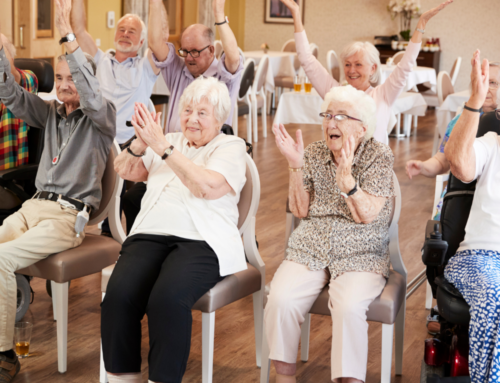Share This Story!
How Is Sleep Connected To Your Heart?
More than one-third of adults in the US report getting less than 7 hours of sleep per night. And while this habit may not lead to consequences right away, over time, not sleeping enough can have significant repercussions for a person’s health. Specifically, sleep deprivation is directly linked to high blood pressure, type 2 diabetes, and obesity. All 3 of these conditions directly impact heart health. For seniors, getting to sleep maybe even more difficult.
Why aren’t you sleeping?
For many older adults, sleep apnea or insomnia may be to blame. Sleep apnea occurs when a person stops and starts breathing multiple times throughout the night. Left untreated, this increases the risk for many health problems, including stroke. Insomnia may show up as trouble getting to sleep or difficulty staying asleep. Half of all Americans experience insomnia periodically, and up to 1 in 10 persistently have problems. The question then arises: what can seniors do to sleep better?
1. Create a schedule
No matter the age, every person can benefit from a consistent sleep schedule. Try to go to bed and wake up around the same time every day, including on weekends. Additionally, seniors can benefit from creating daily routines surrounding bedtime. This might include taking a warm bath to drop the body temperature, reading for 30 minutes, or meditating each night.
2. Mind what you eat and drink
Many seniors struggle with going back to sleep after waking up for a bathroom break. Try to drink all fluids before the sun goes down to avoid waking up to go to the bathroom. Additionally, drinking alcohol too close to bedtime can make staying asleep more difficult. For many people, drinking too close to bedtime leads to waking up in the middle of the night.
3. Enjoy outdoor exercise
Regular exercise is crucial for getting a good night’s sleep. Additionally, exposure to natural sunlight can help to regulate the body’s internal clock. As much as possible, try to take a daily walk to keep the body moving and get a daily dose of vitamin D. Just make sure to wear sunscreen and avoid rigorous exercise within 3 hours of bedtime.
Boost heart health today
Getting enough sleep, though often overlooked, is one of the most crucial habits for ongoing health. High-quality sleep is directly linked to a lower risk of heart disease. If a person has tried these tips and is still having trouble sleeping, consider seeing a doctor to find out if any medications or conditions are interfering with sleep. For more information, speak with a healthcare provider.





